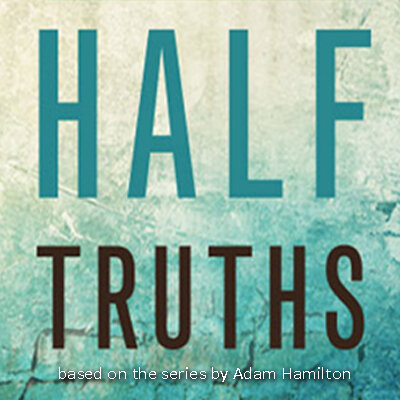You have heard that it was said to those who lived long ago, Don’t commit murder, and all who commit murder will be in danger of judgment. But I say to you that everyone who is angry with their brother or sister will be in danger of judgment. If they say to their brother or sister, ‘You idiot,’ they will be in danger of being condemned by the governing council. And if they say, ‘You fool,’ they will be in danger of fiery hell.
Matthew 5:21-22
_______________
“You have heard it said… but I say to you…”
Such a statement from almost anyone would quickly raise a red flag today. We hear and use the arguments all the time. “What do you mean, “you say”?” “We’ve always done it this way. Are you telling us we’ve been doing it wrong all this time?” “Who are you to say my parents and great grandparents were wrong?”
I was talking to a group of church people once using a similar sentiment. I have had these kinds of conversations on a wide range of subjects. People have told me I did not preach God’s Word because I didn’t use the King James Version. Another man said I would “burn in hell if I didn’t get my wife to repent because she is a pastor,” which in his mind is clearly against God’s Word. The most extreme I have ever seen involved a church leader who actually believed that God’s commands to Joshua to drive the Canaanites out of the land also applies to white American Christians who are charged with ridding our nation of all minorities and non-believers, especially Muslims. His wife proceeded to send me a series of gruesome and inflammatory internet articles about extremist groups and they warned me that my Muslim friends would rape and mutilate my daughter, who was only 2 years old at the time.
Of course these are extreme distortions of Biblical teaching, but the truth is that Scripture has been used throughout history to oppress women, to endorse slavery, and to justify countless wars, the burning of so-called “witches”, the excommunication of scientists, and many other unjust atrocities throughout human history. This is the kind of violence and extremism that results in an “Us vs. Them” culture where God always just happens to be cheering for our team.
Yet Jesus himself said these words… “You have heard but I say,” not once but several times in His famous Sermon on the Mount. Jesus consistently re-frames the people’s understanding or interpretation of the law, not to undermine it, but to get to the heart of God’s intent. Lust is just as bad as adultery and hating someone is the equivalent of murder. “An eye for an eye” becomes, “love your enemies” and the Sabbath should never prevent us from doing good and bringing healing to others.
It’s easy to affirm, at least in words, because Jesus said it. But we must remember that Jesus’ audience did not attribute to him the same divine authority Christians recognize today. When they accused him of breaking the Sabbath or condemned him for defiling himself with sinners, they could just as easily have pointed to any number of scriptures to make their case and declared… “God said it, that settles it.”
If anything, Jesus, Paul, and other New Testament writers demonstrate that it’s not quite that simple. Scripture, just like any other text, can be twisted and distorted to say just about anything. Dr. Joy Moore talks about those preachers who have a verse for everything stating, “If you’ve got a topic, I’ve got a text.” Whether the text actually applies to the topic hardly matters, so long as it came from somewhere in the Bible, or at least “sounds Biblical.” Dr. Ben Witherington III is known for saying “A text without a context is a proof-text for anything you want to say.”
If God truly says something, and if we truly understand the meaning for our context, then yes, it may be fairly black and white. But more often than not, we are not as clear or certain as we would like to think. Let’s take murder for example. The command, “Thou shalt not murder” is one of the most black and white laws in Scripture and in almost every religion and law code throughout history. But even here we argue about gray areas. What about war, euthanasia, self-defense or the death penalty? Do these controversial issues count as “murder” and if so, are they justified? Some would even take it to the extreme that we must not kill animals, but even if someone could prove that was God’s intent, I imagine few of us would become vegetarian.
There’s no one-size fits all interpretation or even a universal method of Biblical interpretation throughout Christian history. We must wrestle with issues of language, context, socio-historic realities, literary styles, authorial intent, original audience and countless other exegetical and interpretive concerns. Rarely will all Christians of all times and all places ever fully agree on what it is that God actually said.
While I believe we must continue to study and wrestle with the meaning of the text in the context of the global Christian community throughout history, we must be careful making absolute statements that we and we alone have the only “right” interpretation on any given issue. Every time we are certain we are right, we will likely find another sincere Christian scholar interpreting the same passage in a very different way.
Understanding what God actually “said” or “meant” is no small task. If we’re honest, most of the time we are not even as clear as we thought we were about what our spouse means. This complex reality should not paralyze us to Biblical interpretation and study, but it should at the very least give us pause and keep us humble in our beliefs and out judgments against the beliefs of other Christians.
Two final words of advice.
Remember that the Word became flesh… not text.
When in doubt, always interpret the text through the lens of Jesus’ life for he is the only person to ever live out the fullness of God’s Word on this earth.
Take to heart the wisdom of Mark Twain who writes, “It is not the parts of the Bible I do not understand that worry me, it is the parts I do understand.”
For as much as Christians argue over the interpretation of obscure and controversial scriptures, we all know far more scripture than we actually put into practice. First and foremost, let us become doers and not merely hearers of those parts of the Word of God that are crystal clear… to love God and love our neighbor (which includes everyone)… to do justice, to love mercy and to walk humbly with our Creator.
This alone may take more than a lifetime to master, and the world will be far better for it.
Special thanks to my wife, Rev. McKenzie Sefa, who preached this challenging topic today in our first of two pulpit swaps during this “Half-Truths” series. You can listen to her full sermon at the link above.








